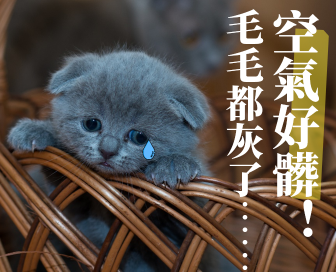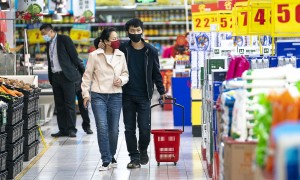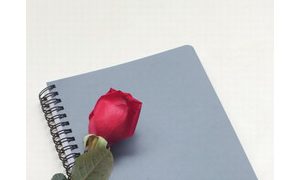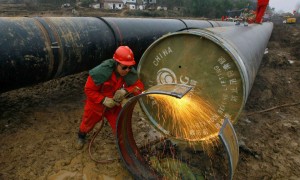Sofia 一早来到教室,看见 Bob 脸上戴着…
Sofia: Bob, have you got a cold? Why are you wearing a face mask?
Sofia:Bob,你感冒了吗?怎么戴着口罩?
Bob: It’s because of the smog. My respiratory system is very sensitive to air pollution—hence the mask.
Bob:是因为雾霾,我的呼吸系统对雾霾很敏感,所以才戴口罩。
Sofia: No wonder visibility is so poor today. I thought it was just fog!
Sofia:难怪今天能见度很糟,我还以为只是雾!
Bob: The weather forecast said that there’s going be severe smog all week. Talking about the weather, did you bring an umbrella with you? The forecast also said it might rain this afternoon.
Bob:天气预报说接下来几天会有严重的雾霾。讲到天气,你今天有带伞吗?气象预报说下午可能会下雨。

Sofia: Oops! I left it at my dorm.
Sofia:哦噢,我忘在宿舍了。
Bob: It’s okay, if it rains I can take you to your dorm. I’ve brought an umbrella.
Bob:没关系,如果下雨了我可以送你回宿舍,我有带伞。
Sofia: Smog and rain… we might get acid rain. I hate the smell of acid rain!
Sofia:雾霾和雨…那可能会有酸雨。我讨厌酸雨的味道!
Bob 真是配备齐全,幸好他有带伞可以送 Sofia 回宿舍。
趁着他们上课的同时,我们先来复习单字吧!
Table of Contents
face mask (n.) 口罩
smog (n.) 雾霾
acid rain (n.) 酸雨
air purifier (n.) 空气清净机
public transportation (n.) 大众交通工具
greenhouse gas emissions (n.) 温室气体排放
face mask (n.) 口罩
mask 的中文为「面具;面罩」,比较常见的「口罩」称为 face mask (不过一般常简称为 mask),「戴口罩」可用 wear (戴着) 或 put on (戴上)。补充:surgical mask (外科口罩)、gas mask (防毒面具)、cotton face mask (棉布口罩)。
I couldn’t recognize my friend because she was wearing a mask.
我认不出我朋友因为她戴着口罩。
Everybody wore a mask at the masquerade ball.
化妆舞会上的每个人都戴了面具。
smog (n.) 雾霾
smog 为「雾霾」,这个字由 smoke (烟) 加上 fog (雾) 所组成。
Taipei gets smog from time to time.
台北时不时受到雾霾侵扰。
acid rain (n.) 酸雨
acid /ˈæsəd/ 为可当名词或形容词,当名词时表示「酸」,当形容词时表示「酸性的;酸味的」,acid rain 即是指「酸雨」。 「酸性的」也可写成 acidic。
My room somehow smells like acid but I don’t know why.
我的房间不知怎地有股酸酸的味道,但不知道为何。
acid 也被延伸为用来形容人「尖酸刻薄」。
His mother has an acid personality. She is always unfairly giving him a hard time.
他妈妈是个尖酸刻薄的人,她总是让他的日子不好过。
下课钟打响的同时,外面也正巧开始下起雨!
Sofia: Oh no! It’s raining!
Sofia:噢不,下雨了!
Bob: Fortunately one of us listened to the weather forecast. Come on!
Bob:幸好我有听天气预报,走吧!
(Bob opens his umbrella and they both walk into the rain.)
(Bob 打开雨伞,他们两人走入雨中。)
Sofia: Do you wear your mask at home as well?
Sofia:你在家也戴口罩吗?
Bob: No, I have an air purifier. I have to turn it on before I leave home in the morning, otherwise I’ll start sneezing as soon as I step inside.
Bob:没有,我有一台空气清净机。我早上出门时把它开上了,不然我一到家摘掉口罩就会一直打喷嚏。
Sofia: That sounds really serious…
Sofia:听起来真的很严重…
Bob: In order to reduce air pollution, I always take public transportation instead of riding a scooter or taking a taxi.
Bob:为了减少空污,我都会选择大众交通工具而不是骑车或搭计程车。
Sofia: I thought that was because you couldn’t afford it…
Sofia:我还以为是因为你太穷。
Bob: Well… okay, but also because of the pollution. I’ve even stopped eating meat so as to reduce greenhouse gas emissions.
Bob:这个嘛…好啦,但也是因为空气污染啦。我也已经开始减少吃肉好降低温室气体排放。
Sofia: Eating less meat is a great way to help the environment—along with buying locally-farmed produce.
Sofia:少吃肉也是个可以帮助环境的好方法,还有购买当地农产品。
Bob: That’s right. Alright, here’s your dorm. See you tomorrow, Sofia!
Bob:没错。好啦,你的宿舍到了。明天见,Sofia!
Sofia: Bye!
Sofia:掰啦!
不愧是我们的 VoiceTube 部落格好青年,Bob 和 Sofia 两人都在生活中尽自己的一份力减少空污!来学学这些和空污有关的单字吧!
air purifier (n.) 空气清净机
动词 purify 的中文为「净化」,字尾加上 -er 就成为 purifier「净化机」,air purifier 即是「空气清净机」。
Sara believes that herbal tea helps purify the body.
Sara 相信草本茶可以帮助净化血液。
The tap water here is drinkable if you run it through a water purifier first.
如果你先用净水器过滤一下,这个水龙头出来的水是可以喝的。
public transportation (n.) 大众交通工具
public 的中文为「大众的;公共的」,transportation 则是「运输;交通工具」,两个单字合在一起则成为「大众交通工具」,为集合名词,动词搭配 take。
Fewer people are choosing to take public transportation since the outbreak of the COVID-19 pandemic.
疫情爆发后,越来越少人选择搭乘大众交通工具。
greenhouse gas emissions (n.) 温室气体排放
greenhouse gas 的中文为「温室气体」,emission 的中文为「排放」,其动词形态为 emit (散发;排放),例如:reduce greenhouse gas emissions (减少温室气体排放)。
Water vapor is the most important of all greenhouse gas emissions, as it controls the Earth’s temperature.
水蒸气是其中一种主要的温室气体,因为它可以调节控制地球温度。
Cars emit exhaust fumes into the air.
汽车会排放废气进到空气中。
要改善空气污染的问题,绝对不是一个人或是一个国家可以单独做到的,而是需要你我每日的点点累积,等某天回过头来就会发现,又可以大口呼吸,淋雨也不怕秃头了!







